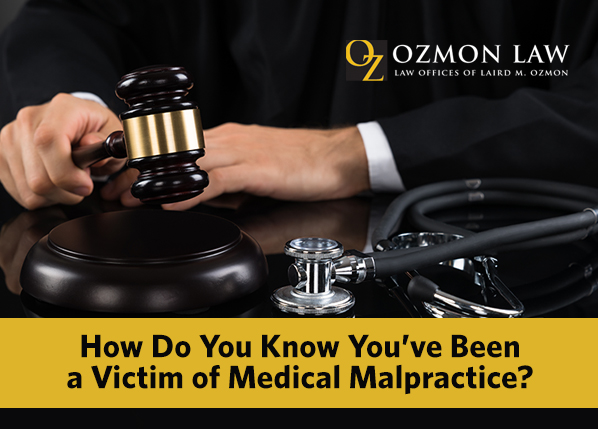
Medical error is the No. 3 leading cause of death in the U.S. according to a 2016 Johns Hopkins University Study. What does this mean? It means the hue and cry claiming medical malpractice claims are spurious and the stuff of an overly litigious population seeking to stymie the best efforts of our country’s health care professionals is hogwash. It is in everyone’s best interest that we zealously seek to ensure the medical profession is always required to meet the standard of care, but human fallibility is a universal condition with no cure. That’s why there is professional liability insurance.
So how do you know if you or a loved one have been the victim of medical malpractice rather than one of the unlucky few who landed on the wrong end of the statistical spectrum with a bad result that does not necessarily equate to bad medicine?
Consider first the definition of “medical error” which is an unintended act (omission or commission) or an act that likely could not achieve its intended outcome, the failure to carry out an intended course of action or devise one, or a deviation from providing proper care. When a patient is harmed by medical error it may occur at the individual or system level, i.e. doctor, nurse, or hospital.
Based on the above definition, the first step in assessing whether you or a loved one might have been a victim of medical negligence is determining whether medical treatment resulted in unintended or unexpected adverse outcomes. If the prescribed treatment did not result in a cure or resolution of a medical condition, was the possibility of the adverse outcome thoroughly explained at any time prior to treatment? Does the adverse outcome appear to be remote or unrelated to the intended procedure?
Even if it was explained, it does not necessarily mean no malpractice occurred. This is particularly true when all other indicators point to a positive outcome, i.e. the patient was otherwise in good health, had no negative history or vigilantly followed medical instructions. Other times, you might just have a gut instinct that something isn’t right. Key indicators may be that the health care professionals suddenly undergo changes in demeanor and appear equivocal or less candid. Any one of these should prompt you to seek out a legal opinion. There are no disadvantages or costs to you; on the contrary, it puts peace of mind within reach. However, it should be kept in mind that even the best malpractice cases are often difficult, time-consuming and expensive. Considering malpractice lawyers generally work on a contingent fee and front all expenses, only serious cases normally merit action.
Medical malpractice attorneys bear these burdens so their clients don’t have to. We will obtain and review the relevant medical records. Then, if warranted, we will retain a qualified health care professional to render an opinion as to whether negligence has occurred. Under Illinois law, a plaintiff cannot pursue a claim for medical malpractice without this opinion supporting their claim. The message here is; do not be intimidated by propaganda intended to persuade people to ignore reality. Medical negligence occurs enough to put it in the Top 3 leading causes of death, not even accounting for non-lethal injuries. If you suspect serious medical malpractice, enlist a qualified plaintiff’s attorney to evaluate your case and, if meritorious, get you a fair settlement or judgment against the culpable health care professional or institution.

Attorney Laird M. Ozmon
